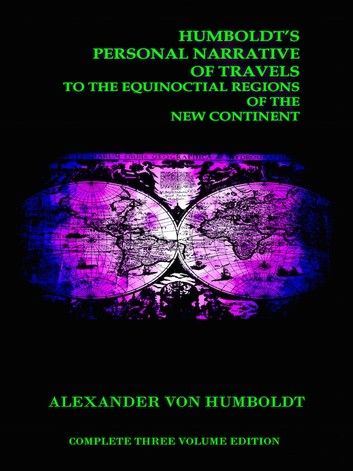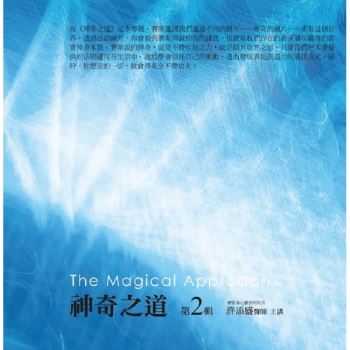| FindBook |
有 1 項符合
Humboldt's Personal Narrative of Travels to the Equinoctial Regions of the New Continent的圖書 |
 |
Humboldt's Personal Narrative of Travels to the Equinoctial Regions of the New Continent 作者:Alexander Von Humboldt 出版社:Editions Artisan Devereaux LLC 出版日期:2015-12-29 語言:英文 |
| 圖書館借閱 |
| 國家圖書館 | 全國圖書書目資訊網 | 國立公共資訊圖書館 | 電子書服務平台 | MetaCat 跨館整合查詢 |
| 臺北市立圖書館 | 新北市立圖書館 | 基隆市公共圖書館 | 桃園市立圖書館 | 新竹縣公共圖書館 |
| 苗栗縣立圖書館 | 臺中市立圖書館 | 彰化縣公共圖書館 | 南投縣文化局 | 雲林縣公共圖書館 |
| 嘉義縣圖書館 | 臺南市立圖書館 | 高雄市立圖書館 | 屏東縣公共圖書館 | 宜蘭縣公共圖書館 |
| 花蓮縣文化局 | 臺東縣文化處 |
|
|
Alexander von Humboldt was is a founding father of environmentalism, a visionary who predicted man-made climate change as early as 1800.
In his Personal Narrative of Travels, he was the first to understand that the “wants and restless activity of large communities of men gradually despoil the face of the Earth.”
He prophetically listed three ways in which the human species was even then affecting the climate: “Through the destructions of forests, through the distribution of water, and through the production of great masses of steam and gas at the industrial centres.”
Large-scale irrigation, he said, would turn parts of Venezuela into arid deserts and the valleys beneath the high plateau of Mexico into desolate landscapes.
Darwin may well be the most famous of Humboldt’s scientific devotees, but Humboldt’s vast understanding of the natural world drew legions of admirers, among them Louis Agassiz, Franz Boas, and Samuel Morse.
So great was Humboldt’s influence, the middle years of the nineteenth century are now considered the era of Humboldtian science. There are more plants, animals, minerals and places named after Humboldt than any other person.
ALEXANDER VON HUMBOLDT (1769-1859) was a Prussian naturalist and explorer who explored much of Central and South America. Humboldt and his friend, the French medical doctor/botanist A. Bonpland, explored the coast of Venezuela, the Amazon and Orinoco Rivers, and much of Peru, Ecuador, Colombia and Mexico.
His contemporaries considered Humboldt the most famous man in the world after Napoleon.
Charles Darwin described him as “the greatest scientific traveler who ever lived.”
|











